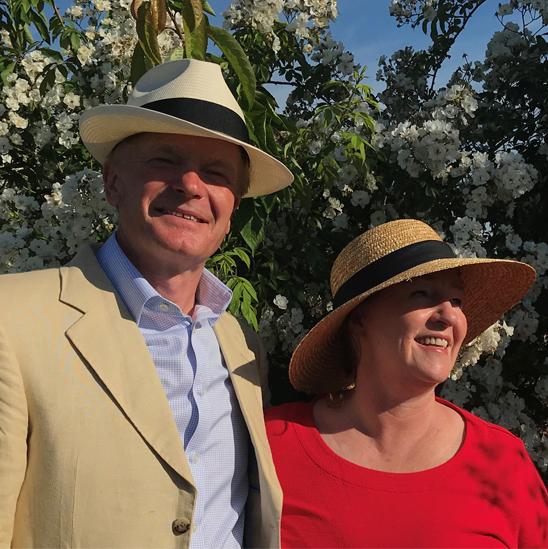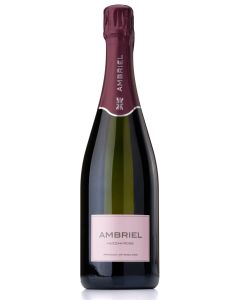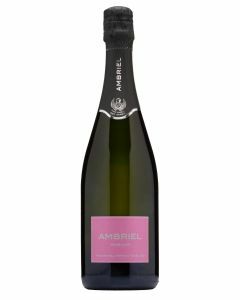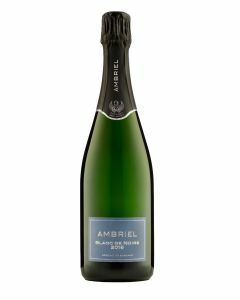AMBRIEL
Founded in 2006 by couple Wendy and Charles Outhwaite, self-professed wine lovers with the dream of producing their own sparkling wine.
History
This is a small-scale, hands-on operation with meticulous attention to detail in the vineyard and winery

At boutique winery Ambriel in the heart of West Sussex, the currency is GBP: Grapes-Blending-Patience. The wines are blended for absolute quality and typicity of expression rather than quantity, then aged on lees and cork for just as long as they need to come into focus. Founded in 2006 by couple Wendy and Charles Outhwaite, self-professed wine lovers with the dream of producing their own sparkling wine. Alongside professional careers in law and finance in London, they embarked on a dedicated mission to find the perfect site for a vineyard, scouring the south of England for 5 years before finally, one day, a tip off led them up a winding lane to a hidden site in the village of Nutbourne in West Sussex.
The viticultural potential of this beautiful site was immediately obvious in terms of its aspect and soils. Its sunny, south-facing slopes overlook the sweeping South Downs, while the soils are greensand, rare but highly prized by English viticulturalists for its heat-retaining, light-reflective and free-draining qualities – particularly useful in a country of marginal temperatures, sporadic sunshine, and more than the occasional rain shower! So this was where Ambriel was born. This is a small-scale, hands-on operation with meticulous attention to detail in the vineyard and winery. Every single imaginable detail has been thought through and acted upon.
In the vineyard, Wendy and Charles planted classic champagne varieties chardonnay, pinot noir and pinot Meunier, using high quality Burgundian clones matched to suitable rootstocks.
The vineyard is run sustainably, based on common sense principles in deference to nature (what the French would call ‘lutte raisonnée’), to promote a healthy and self-balancing ecosystem in the vineyards. All operations – pruning, canopy management, harvest – are carried out by hand by a small, dedicated team, with the ultimate aim to produce fruit of exceptional quality.
In the winery, the team’s attention to detail is similarly impressive. Grapes are vinified in batches according to parcel and clone; fermentation takes place at precise temperatures and in different vessels – stainless steel tanks or aged barrels - with clear quality/style objectives.
Blending of the ‘vins clairs’ is carried out blind based on the palette of wines available, including reserve wines, with the ambition to produce a wine of the highest possible quality, rather than determined by a required production quantity. Notable too is the Outhwaites’ celebration of naturally high acidities, characteristic of England’s grape production. Instead of looking to soften this in the winemaking process (eg malolactic), they positively embrace it, instead preferring quite simply to allow the wines the time they need on the lees and on cork – for the fruit and acidity to meld, and to gain in complexity of flavour and texture.
The Vineyards

Typically the vineyard experiences moderate rainfall, cool winters and temperate summers with cool breezes from the south coast, which together allow the grapes to ripen slowly but fully and to retain the crucial acidity and freshness vital for the production of a high-quality sparkling wine.
It is one of the few vineyards fortunate enough to be sited on rare, free-draining, reflective greensand. Believed to be the soil of choice for England, the soil structure helps avoid waterlogging, while the underlying greensand rock stores heat from the sun, mitigating diurnal temperature swings, and reflects back the sunshine, helping to ripen the grapes.
The vines comprise of the classic champagne varieties: chardonnay, pinot noir and pinot meunier, of which Burgundian clones were selected, for their superior fruit quality. These were planted to a range of rootstocks matched to each individual parcel within the vineyard.
The vineyards are tended by hand with deference to nature; pruning, canopy management and harvesting are all carried out by hand. The vineyards teem with beneficial insects encouraged by wildflower planting – particularly ladybirds and lacewings.
Winter grazing between dormant vines by ouessants (the smallest sheep in the world) reduces the risk of frost and replenishes the soil. Sustainable viticultural practices promote healthy vines that are tended by hand, one by one, for optimal grapes.
A team of skilled pickers harvests the bunches by hand, over a 3-week period in late September and October.



